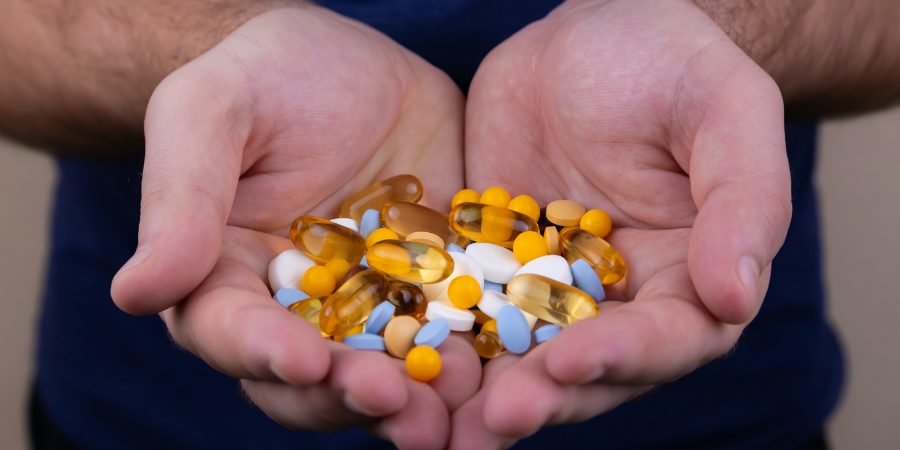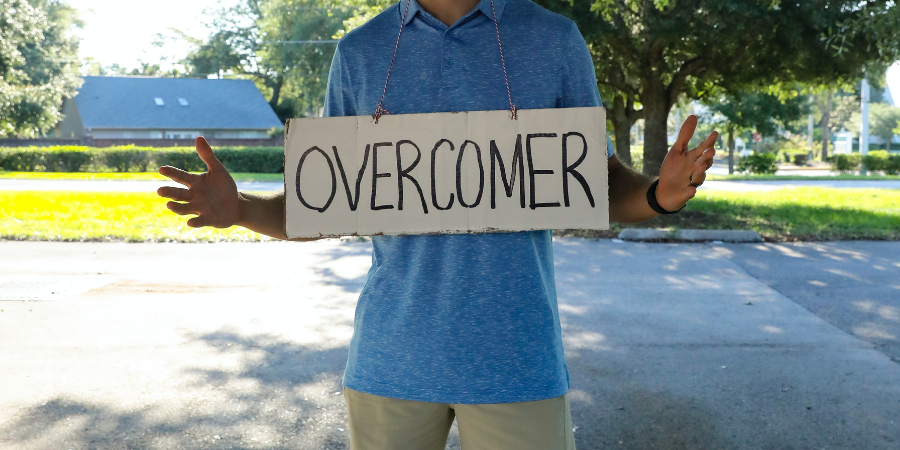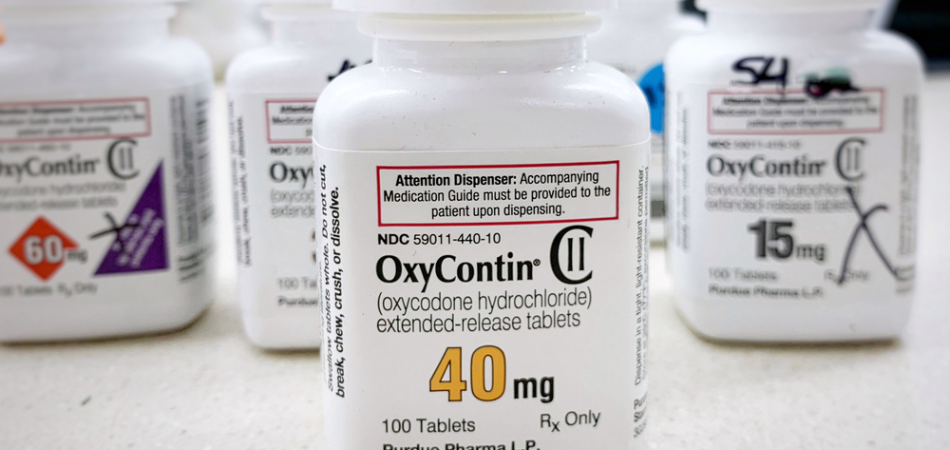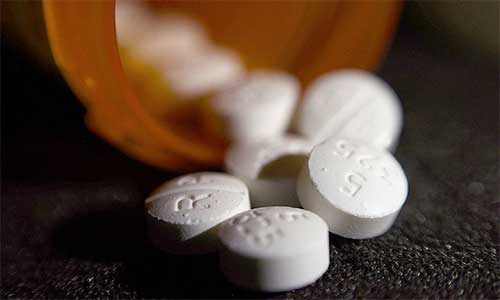Prescription drug addiction

Written by:

Medically Reviewed by:
Last Updated:
November 6th, 2025
When we think about drug addiction, we usually assume that the drugs involved are illegal substances. However, more and more people in the UK and around the world are developing a prescription drug addiction. If you are reading this page, you may be concerned that you or a loved one may be currently struggling with prescription medication addiction.
Please remember that there is no shame in asking for help. On this page, we have taken care to explain what prescription drug addiction is, the signs and symptoms, the risk factors and how you can take your first steps to recovery.

Benzo addiction
Benzodiazepines are usually provided as medication for a range of conditions such as insomnia, seizures and anxiety, but can be abused due to the addictive feeling of GABA production. Therefore, being able to identify an addiction is crucial.

Opiate addiction
Opioids are prescribed for pain relief, but abuse can cause an overproduction of pleasure-enhancing dopamine. It is imperative to understand the signs and symptoms of a potential opiate addiction and act quickly to address it.
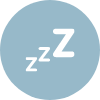
Sleeping pills addiction
When prescribed for those with sleep disorders, sleeping pills can be beneficial but, if abused, have the potential to be highly addictive. Click here to learn more about what an addiction to sleeping pills might look like.
How prescription drug addiction develops
Prescription drugs such as legal opiates and benzodiazepines can be abused due to their highly addictive qualities. These prescription drugs affect the gamma-aminobutyric acid (GABA) in our brain, a neurotransmitter that produces feelings of calmness.
Whilst benzodiazepines produce GABA, opiates inhibit GABA and replace it with another neurotransmitter: dopamine. Both of these neurotransmitters are pleasure-enhancing. Taking more than your prescribed dosage can facilitate dependency, as your body and mind begin to crave these drugs to receive GABA and dopamine. This is what causes prescription drug abuse, which in turn can result in addiction.
Sadly, recent data has revealed that the estimated proportion of opiate users who are not in rehab or active treatment rose by 5.9% from 2014-2015 to 2019-2020. Likewise, ‘more than a quarter of a million people in England’ were thought to be taking benzodiazepines and Z-drugs (insomnia medication) ‘far beyond the recommended time scales’ in 2017.
As prescription medication addiction continues to rise, it is more important than ever to reach out for help if you are worried about a friend, family member, or your own abuse of these substances.
Symptoms of prescription drug abuse
Different types of prescription drug abuse such as co-codamol addiction, paracetamol addiction or Ritalin abuse can produce different symptoms to opiate abuse or benzodiazepine abuse. Here are some of the most common symptoms of prescription medication abuse:
Physical symptoms of prescription drug abuse
- Headaches
- Nausea
- Sweating or high temperature
- Insomnia
- Appetite changes
- Heart palpitations
- Slow breathing
- Digestive problems
- Slurred speech
- Catatonia (immobility)
Psychological symptoms of prescription drug abuse
- Extreme cravings
- Agitation
- Memory problems
- Difficulty concentration
- Dizziness
- Depression
- Chronic low mood
- Anxiety
- Paranoia
- Confusion
Warning signs of prescription drug addiction
As the symptoms of prescription drug addiction can be physical and psychological, it is not always the easiest mental health disorder to detect. Nonetheless, there are tell-tale signs that you or someone you know may be suffering from prescription medication addiction:
Signs that you have a prescription drug addiction
- Your prescription medication has taken priority above your work or personal life
- You experience strong cravings for your prescription
- You feel as if you are physically unable to stop taking your prescription
- You’ve visited several doctors to try to get extra prescriptions or placed extra online orders
- You regularly increase your prescription dosages to achieve feelings of euphoria or calmness
- You have forged or stolen prescriptions
Signs a loved one has a prescription drug addiction
- You have noticed that they make very frequent trips to the doctors
- They present sudden and strong mood swings
- You have noticed that they are often ‘losing’ their prescription and requesting new orders on an increasingly frequent basic
- They are neglecting their responsibilities, such as their career, education, family and relationships
- You have noticed that they have become socially withdrawn and secretive
- They sometimes seem distant and emotionally blunt
Five things to know about prescription drug addiction
We appreciate that the subject of prescription drug addiction can be upsetting or overwhelming, especially if you believe that you or a loved one may be experiencing this difficult mental health disorder. So, we have provided a short list of the five most important things to know about prescription medication abuse and its risk factors.
1. Prescription drug addiction can be just as dangerous as illicit drug addiction
Anything from paracetamol abuse to opiate abuse can have serious long-term consequences on your mental and physical health. If you abuse prescription medication over an extended period of time, you could experience health complications such as cognitive issues, organ damage, heart problems, respiratory issues, and in the worst case, death.
2. Not all prescription drugs are dangerous
We want to be very clear that you should not suddenly stop taking your medication just because other people have developed addictions to your medication. As long as you take the correct dosages of your prescription at the correct times, you are far less likely to develop prescription drug addiction. Remember that there are lots of contributing factors to prescription drug addiction: genetic, personal history and social environment. If you are concerned about your dosage or any changes to your prescription, always consult with your doctor to figure out the best course of action.
3. It can be easier for people to hide or lie about prescription drug addiction
Prescription drugs are different to illicit drugs in that they are legal and more accessible. It is easier for prescription medication abuse to hide in plain sight compared to illicit drug abuse. Therefore, people who are suffering from prescription drug addiction may try to dismiss your concerns about their abuse. For example, they may explain away any mood swings or missing prescriptions as normal behaviour. However, if you see a troubling pattern in their behaviour, you can always offer your support in finding treatment.
4. Some people may struggle to understand prescription drug addiction
Unfortunately, inherited social stereotypes about drug addiction can make it difficult for some people to understand prescription drug addiction. Like alcohol, some may not perceive these substances as overtly dangerous due to their legal status, which can, regrettably, enable a loved one’s addiction. If you believe that somebody does not quite understand this mental health disorder, direct them to this page or a similar resource which explains the risk factors of prescription drug addiction.
5. You can overcome prescription drug addiction
We are happy to report that there are many avenues of help available for prescription drug abuse in the UK by seeking inpatient or outpatient treatment. Keep reading to learn about these different prescription drug recovery options and why support is so important for your recovery.
Seeking help for prescription drug addiction
At this stage, you may be wondering how you can find help for prescription drug abuse. If you would like to pursue outpatient support, you can attend a local Narcotics Anonymous support group, which is a fellowship that follows the 12-step programme. Alternatively, you can receive prescription drug addiction treatment at an inpatient UKAT rehab centre which incorporates detox, therapy and one year’s free aftercare.





